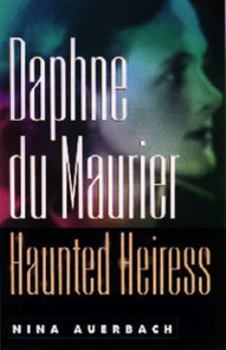Daphne Du Maurier, Haunted Heiress
Select Format
Select Condition 
Book Overview
Auerbach examines the writer of depth and recklessness now largely known only as the author of Rebecca, looking at the way her sharp-edged fiction, with its brutal and often perverse family relationships, has been softened in film adaptations of her work. She reads both du Maurier's life in her writings, and the sensibility of a vanished class and time that haunts the fringes of our own age.
Format:Paperback
Language:English
ISBN:0812218361
ISBN13:9780812218367
Release Date:October 2002
Publisher:University of Pennsylvania Press
Length:192 Pages
Weight:0.56 lbs.
Dimensions:0.5" x 6.0" x 8.7"
Customer Reviews
3 ratings
Du Maurier - More Than Just Escapist Fiction
Published by Thriftbooks.com User , 21 years ago
Auerbach, a professor of literature at University of Pennsylvania, dazzles the reader with her fascination for the writings of Daphne Du Maurier, the writer unfortunately best known for the so-called Gothic novel, 'Rebecca'and various film adaptations like Hitchcock's 'The Birds' and Roeg's 'Don't Look Now'. As a young summer camp participant in the early 50s, Auerbach found herself both entranced by Du Maurier's vicious protagonists and repulsed by her label as a 'romantic' writer of escapist woman's fiction. Her analysis of Du Maurier's work vehemently disputes Du Maurier's dismissal by critics; Auerbach finds her male centered stories brimming with fully drawn characters that derive their strength from a violent/murderous reaction to the females who enter their lives. Du Maurier's female narrators (1st person or otherwise) depend upon their omnipotent male counterparts for identity; the so-called romances of Rebecca, Jamaica Inn and Frenchman's Creek are not driven by love as they are erroneously depicted in the corresponding movie adaptations, but revolve around the transition of the female acquiescing to the strength of the male and becoming dependent on him for identity and definition. These female protagonists, like Du Maurier, herself, initially possess the characteristics of young boys and only become women by losing their independence. Above all, Auerbach describes Du Maurier's haunted inheritance: the necessity of keeping of her heritage alive as initiated by her grandfather George, author of 'Trilby' and her actor father ,Gerald. This is not a biography of Daphne Du Maurier, but rather a literary critique of her many novels and fantastic short stories. As it relates to Du Maurier's fiction, Auerbach eludes to Du Maurier's penchant towards lesbianism, citing Margaret Forster's book, "Daphne Du Maurier: The Secret Life of the Renowned Storyteller" as her source. She analyzes the movie adaptations, finding Hitchcock's 'Rebecca', 'Jamaica Inn' and 'The Birds' inferior to the original thoughts as penned by the author, herself. As I have found myself compelled over the years to reread Daphne Du Maurier's lesser known masterpieces, like 'The House on the Strand', 'The Scapegoat', and 'My Cousin Rachel', I fully understand Auerbach's fascination with the author and the strange almost spellbinding hold she has over her readers. I recommend this book to anyone who has been under the Du Maurier spell and realizes that she is much, much more than just a escapist romance writer. Like Patricia Highsmith, her amoral comments on male/female relationships wickedly define the 20th century.
A revealing, absorbing study
Published by Thriftbooks.com User , 23 years ago
Du Maurier is the author of almost twenty novels, articles, plays, memoirs and short stories; yet is known for a relatively limited handful of popular works. Daphne Du Maurier: Haunted Heiress analyzes her lesser-known volumes and their characters, providing a strong literary analysis of metaphors in her writing, and ethnic and social observations of her choices and times. The result is a revealing, absorbing study.
Long overdue appreciation
Published by Thriftbooks.com User , 24 years ago
This book is a great complement to du Maurier's fiction. Auerbach has written a very personal account of du Maurier's life and its relation to her writing. I liked the intimate tone of the book, as if you were talking to Auerbach over coffee; there is nothing over-blown or haughty. Auerbach's analysis of how du Maurier's stories were (mis-)adapted for film is brilliant, as well as Auerbach's discussion about du Maurier's sexuality and prejudices. Quite enjoyable.






